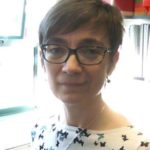Our team development

The Target Malaria project has been underway for over 4 years, building on over a decade of prior research. What started as a university-based research programme is now an international not-for-profit multi-disciplinary consortium driven by a common goal: eliminating malaria by reducing malaria-carrying mosquitoes with the use of our innovative technology.
Austin Burt’s idea was started initially with only a small scientific research team working to develop his theory at Imperial College London in the laboratory of Andrea Crisanti. Since then we are proud to have grown to what is now an international team of more than 100 people in 7 countries on 3 continents.
Promising early results in the laboratories at Imperial College followed more recently by proof of principle for gene drive, has created momentum and additional funding opportunities allowing us to grow our teams. In 2012 most notably we formed partnerships with three countries in Africa; Burkina Faso, Mali and Uganda. These partnerships allow us to assess the feasibility of the project and validate the theory that we could use gene drive to create strains of genetically modified Anopheles gambiae mosquitoes to reduce the number of Anopheles gambiae mosquitoes in the setting where the technology may be used – malaria endemic countries. An integral part of the team expansion was to include stakeholder engagement officers at this still very early stage to co-develop the technology and gain stakeholder buy in localy, nationaly and internationaly.
Our team has now grown to include scientists of varied disciplines, regulatory affairs, risk, and communications consultants, as well as project managers focused on keeping the work on track and aligned with our ultimate objective. The diversity of disciplines within our team is what I feel is Target Malaria greatest strength – our people are our best asset..
I am fortunate to work on a project with such potential, but we are still at a very early stage with the real benefit to communities at least 10 years away, with many stages of evaluation still to be undertaken, it is a long road but we have a team with the determination to succeed.
